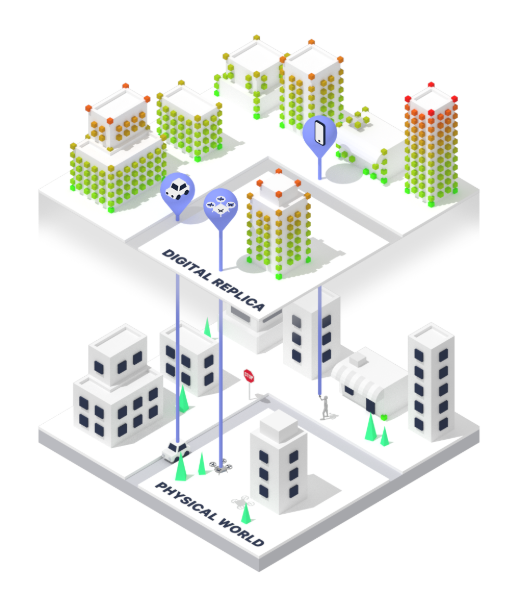Facebook Acquires the Computer Vision Startup Scape Technologies

TechCrunch discovered a regulatory filing that shows that Facebook has acquired the London-based computer vision startup Scape Technologies. The startup uses computer vision to determine location accuracy beyond the capabilities of the global positioning system (GPS).
It uses a cloud-based “Visual Positioning System” which translates images into 3D maps that provide very precise outdoor location over whole cities. It can come in handy when someone wants to know the exact location of store in a particular street block, for example.
The full terms of the acquisition deal are yet to be unveiled but a Companies House update shows that Facebook Inc. now has the majority stake in the company (more than 75%). According to TechCrunch, information from other filings shows the deal could be worth $40 million.
Additional filings also indicate that previous venture capital representatives at the computer vision startup have already resigned from Scape Technologies Board and have been replaced by two Facebook executives.
Scape Technologies’ backers include Entrepreneur First, Mosaic Ventures, LocalGlobe and Fly Ventures. Both EF and Fly Ventures had some kind of joint exit in the past when Facebook acqui-hired Bloomsbury AI. Acqui-hiring refers to an acquisition where a large company buys a small company or startup primarily for its employees.
Scape Technologies is a computer vision company that was founded in 2017 and has been building a “Visual Positioning Service” that leverages computer vision to enable developers to build apps that need location accuracy beyond what is realizable with GPS alone.
Initially, its Visual Positioning Service has targeted AR apps but the technology has also had the potential to be deployed in other areas such as logistics, mobility and robotics. Broadly, Scape is keen on developing a technology that would allow any machine that is equipped with a camera to make sense of its surroundings.
Scape’s “Vision Engine” can create 3D models of the surrounding environment from images and video material. The Scape interface enables smartphones or augmented reality glasses to compare camera motifs like house facade with the Scape 3D database and use this data to derive the exact position of the camera in the room.
This interface is known as “Visual Positioning System” (VPS). It should provide location information that is more precise than what you would get with GPS. The technical principle behind it has already been used by Google in developing a Visual Positioning System that is already being used for Augmented Reality navigation in Google Maps.
Scape co-founder and CEO Edward Miller has in the past described its “Vision Engine” as a large-scale mapping pipeline capable of creating 3D maps from ordinary photos and videos. Camera devices are subsequently able to query the Vision Engine via the “Visual Positioning Service” API and then use its data to determine their exact location more precisely than is possible with GPS. Scape’s Visual Positioning Service has already been made accessible to select developers through its SDK.
At the moment, it isn’t clear what Facebook plans to do with Scape Technologies but the acquisition is a good fit for Facebook which has been ramping up its investments in AR and VR. AR uses would make the best fit. The technology could help users navigate around cities by simply looking at the buildings around them. Other potential uses of the technology include deployment in improving the accuracy of Facebook’s check-in feature when users capture photos and videos.
The technology would still raise issues regarding Facebook’s location tracking of users but it would be a brilliant tool for scenarios where users really want Facebook to know their actual location.
The Race to the AR Cloud
The precise 3D location is a very critical component of Augmented Reality. The ultimate aim is to permanently attach digital information to real places that can be accessed by everyone with an AR-enabled device. This requires the creation of a 3D coordinate system of the physical world that will be machine-readable. This is what is referred to as the AR Cloud. Scape Technologies is one of the pioneers in this pursuit. The company developed its Vision Engine and its VPS scanned more than a hundred cities in 3D.
With the Scape acquisition, Facebook is buying expertise more than anything. But it is also getting its hands on the startup’s valuable 3D data that could help it catch up with Google and Apple in the race to the AR Cloud.
https://virtualrealitytimes.com/2020/02/09/facebook-acquires-the-computer-vision-startup-scape-technologies/https://virtualrealitytimes.com/wp-content/uploads/2019/08/Scape-Lauches-for-Hyper-Accurate-Geolocation-600x339.pnghttps://virtualrealitytimes.com/wp-content/uploads/2019/08/Scape-Lauches-for-Hyper-Accurate-Geolocation-150x90.pngAcquistionsBusinessTechCrunch discovered a regulatory filing that shows that Facebook has acquired the London-based computer vision startup Scape Technologies. The startup uses computer vision to determine location accuracy beyond the capabilities of the global positioning system (GPS). It uses a cloud-based “Visual Positioning System” which translates images into 3D maps that...Sam OchanjiSam Ochanji[email protected]EditorVirtual Reality Times - Metaverse & VR
